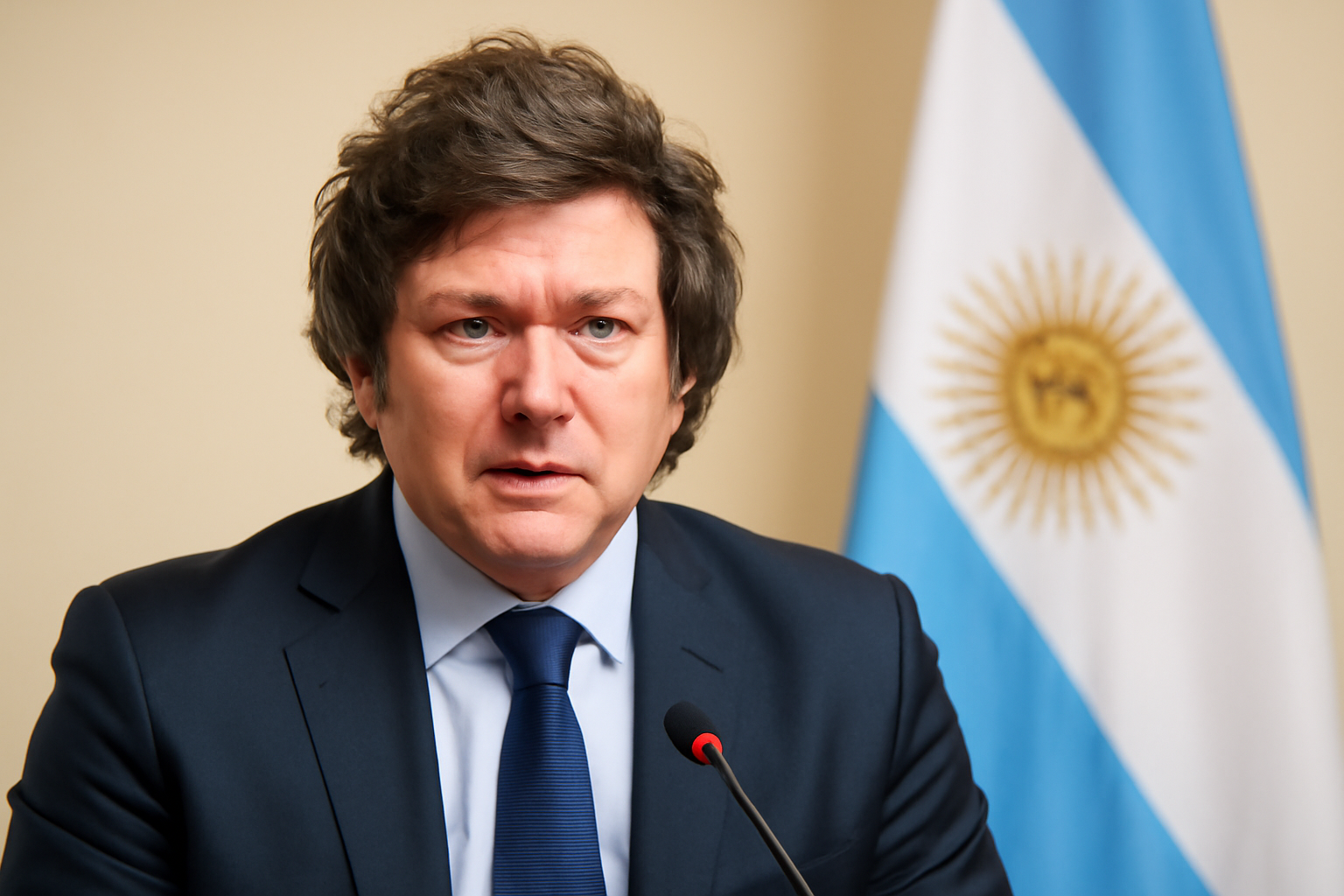
In a controversial move, Argentina's government, led by President Javier Milei, has introduced a ban on gender-affirming healthcare for individuals under the age of 18. The decision, announced via a presidential decree, aligns with similar legislative actions recently observed in countries such as the UK, Sweden, and Finland.
The decree was reportedly issued on Thursday, February 6th, sparking immediate backlash from LGBTQ+ rights groups and activists. A spokesperson from the president's office justified the decision by claiming that extreme applications of gender ideology to minors constitute a form of child abuse, either through physical force or psychological coercion.
Impact on Transgender Youth and Inmates
Critics argue that the ban is a significant setback for transgender rights, as it prevents young Argentinians from accessing essential medical care that supports their gender identity. Furthermore, the decree mandates that transgender individuals in the prison system are to be housed according to their gender assigned at birth, raising serious concerns about their safety and well-being.
This legislative rollback is particularly striking given Argentina's history of progressive policies regarding LGBTQ+ rights. In 2012, the country made headlines by becoming the first nation to implement a self-identification law, which allowed individuals to change their legal gender without the need for medical or judicial approval.
Condemnation and Calls for Repeal
The international LGBTQ+ advocacy group ILGA World has strongly condemned the new policy. A representative from the organization emphasized that the decree not only stigmatizes gender diversity but also criminalizes it, undermining the region's previous advancements in gender identity recognition.
"Argentina was a beacon in the region for recognizing the right to gender identity without pathologization or judicial oversight," said the spokesperson. "This regression, enforced through an executive order rather than through parliamentary debate or the involvement of affected communities, constitutes an abuse of executive power and harms democratic institutions."
ILGA World and other human rights organizations are urging Argentina's Supreme Court to overturn the decree, highlighting the need for a democratic approach to policymaking that includes the voices of those directly impacted by such decisions.
Public Response and Political Climate
The announcement of the ban followed closely on the heels of a large demonstration in Buenos Aires, where thousands rallied in support of LGBTQ+ rights. The protestors expressed their disapproval of President Milei's stance on various social issues. Milei, known for his inflammatory rhetoric, has been quoted calling progressive policies, including transgender rights and environmental activism, "a cancer that must be extirpated."
These actions have drawn widespread criticism both domestically and internationally, as many view them as a step backwards in the fight for equality and human rights. Activists are concerned that this policy could lead to increased discrimination and marginalization of LGBTQ+ individuals in Argentina.
As public discourse continues, many are watching to see how this decision will affect the country's reputation as a leader in LGBTQ+ rights in Latin America. The conversation has sparked debates about the balance between government power and the protection of individual rights, especially in the context of minority groups.
Readers are encouraged to share their perspectives and engage in respectful dialogue about this issue. The ongoing developments in Argentina serve as a reminder of the work that still needs to be done to ensure equality and justice for all individuals, regardless of their gender identity.
Please feel free to add your thoughts in the comments section below, and let's continue to support and uplift one another in the fight for equality.
Tags: Argentina, Gender Rights, LGBTQ+, Transgender Youth, Human Rights
Related Posts
Triumphant Trans Woman Wins Legal Battle and Inspires Others to Stand Up for Their Rights
Breaking new ground: a landmark victory in transgender rights After battling in courtrooms and enduring endless challenges, Diana Portillo, a transgender woman, has secured a monumental victory in her decade-long fight against workplace discrimination. The result? Nearly $1 million awarded in a historic settlement. But this isn't just a win on paper—it represents a powerful precedent in combati [...]
Pride Month in Latin America: Protests and Demands for Equality
**Celebrating Pride and advocating LGBTQ+ rights in Latin America** Pride Month in Latin America was a lively mix where celebration met activism. Communities united, not just throwing a party but making a stand—demanding equality and pushing governments toward better protection and rights recognition. Throughout Latin America, pride events erupted in marches and cultural displays, each with a c [...]
Transgender Erasure Actions Implemented by National Park Service
```html Trump administration's impact on national park service and transgender recognition The Trump administration made notable moves in undermining transgender representation, which included directing agencies like National Park Service not include "T" and "Q" when they refered “LGBTQ” in any official communication. This move seems part a broader plan by this administration aimed at reducin [...]